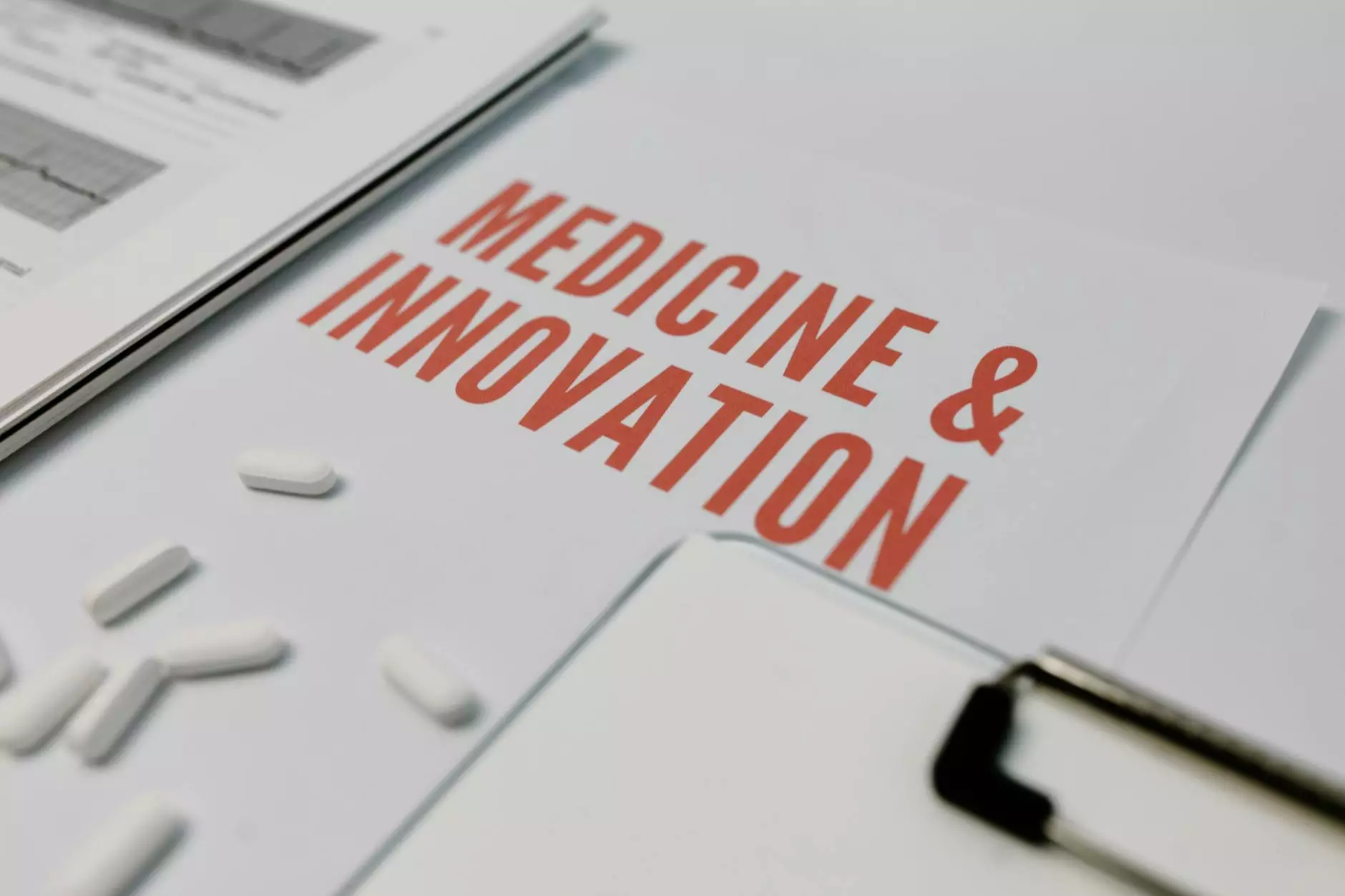Transforming the Pharmaceutical Industry with CRM Software

The pharmaceutical industry stands at the forefront of innovation, constantly adapting to new technological advancements and regulatory challenges. One of the key drivers of success in this sector is the effective management of customer relationships through CRM software. This article explores the profound impact of CRM software in the pharmaceutical industry and how it can transform business operations.
Understanding CRM Software
CRM (Customer Relationship Management) software refers to a comprehensive suite of tools designed to help businesses manage interactions with customers, streamline processes, and increase profitability. In the context of the pharmaceutical industry, these tools facilitate critical functions, including sales management, customer service, and data analysis.
The Importance of CRM in the Pharmaceutical Sector
The pharmaceutical landscape is characterized by a complex web of stakeholders, including healthcare professionals, patients, pharmacy teams, and regulatory bodies. Here’s why CRM software in the pharmaceutical industry is essential:
- Data Management: Pharmacies and pharmaceutical companies collect vast amounts of data daily. Effective CRM tools help organize, track, and analyze this data, leading to informed decision-making.
- Enhanced Communication: CRM systems facilitate smoother communication channels between sales representatives and healthcare providers, ensuring timely and relevant updates.
- Regulatory Compliance: The pharmaceutical industry is heavily regulated. CRM software can include compliance tracking features that help companies adhere to legal requirements, thus avoiding potential penalties.
- Improved Customer Service: With a centralized data repository, pharmaceutical companies can provide personalized and efficient service, leading to higher customer satisfaction and loyalty.
Key Features of CRM Software in the Pharmaceutical Industry
Modern CRM software solutions come packed with features tailored specifically for the pharmaceutical sector. Below are some key features:
1. Contact Management
A robust CRM system allows companies to store detailed information about their clients, including contact details, meeting histories, and treatment plans, ensuring that sales teams have access to crucial information when interacting with clients.
2. Sales Automation
Sales automation features streamline processes, allowing sales representatives to focus more on building relationships rather than administrative tasks. Automated workflows can include following up on leads, scheduling appointments, and sending reminders.
3. Reporting and Analytics
CRM software equips pharmaceutical companies with advanced analytics tools that provide insights into sales trends, customer behaviors, and marketing effectiveness, enabling data-driven strategies.
4. Multi-Channel Communication
With features for email, phone, and social media integrations, CRM systems enable pharmaceutical representatives to communicate with clients across various platforms, ensuring a consistent experience.
5. Patient Management
For pharmaceutical companies selling directly to consumers, patient management features enable tracking of patient interactions, prescription histories, and health outcomes, fostering better healthcare practices.
Benefits of Implementing CRM Software in Pharmaceutical Companies
The implementation of CRM software brings numerous advantages to pharmaceutical companies:
1. Streamlined Operations
By automating repetitive tasks, companies can streamline operations, reduce time spent on administrative duties, and allow staff to concentrate on high-value activities such as strategic planning and client engagement.
2. Enhanced Customer Insights
CRM systems provide insights into customer needs and behaviors, allowing for personalized marketing campaigns and tailored product offerings that resonate with healthcare professionals and patients alike.
3. Increased Revenue
A well-implemented CRM system can lead to increased sales and revenue by optimizing sales processes and enhancing client relationships, ultimately converting more leads into loyal customers.
4. Improved Collaboration
With all customer and sales data available on a central platform, different departments can collaborate more effectively, sharing insights that drive better decision-making across the organization.
5. Better Compliance and Risk Management
CRM software often includes compliance management tools, significantly reducing the risk of regulatory breaches and associated penalties. This is particularly important in an industry where compliance is non-negotiable.
Case Studies: Successful Implementation of CRM Software
To underscore the impact of CRM software, let's explore a few case studies where pharmaceutical companies successfully integrated these systems into their operations:
Case Study 1: Global Pharma Inc.
Global Pharma Inc. faced challenges with fragmented customer data and inefficient sales processes. By implementing a comprehensive CRM software solution, they were able to centralize customer information, automate sales workflows, and enhance communication among teams. As a result, the company reported a 25% increase in sales within the first year of CRM deployment.
Case Study 2: HealthMed Solutions
HealthMed Solutions focuses on direct-to-consumer pharmaceuticals. They leveraged CRM software to manage patient interactions and track treatment outcomes. This enabled the company to refine its marketing strategies based on real-time patient feedback, ultimately leading to a 40% increase in customer retention rates.
Choosing the Right CRM Software for Your Pharmaceutical Business
Finding the right CRM solution is crucial for maximizing its potential impact. Here are some key considerations for pharmaceutical companies:
1. Industry-Specific Features
Ensure the CRM software offers features specifically designed for the pharmaceutical industry, including compliance tracking, analytics, and patient management.
2. Scalability
The chosen CRM should align with the company's growth plans. Look for solutions that can scale as your business expands, preventing costly transitions in the future.
3. User-Friendly Interface
Adoption rates are higher for intuitive systems. A user-friendly interface reduces the learning curve and encourages team members to utilize the software effectively.
4. Integration Capabilities
Choose CRM software that can seamlessly integrate with existing tools and systems used within your organization, ensuring a smoother transition and greater efficiency.
5. Support and Training
Robust support and training options are critical to ensuring your team maximizes the software's capabilities. Ensure the vendor offers comprehensive training and ongoing support.
Future Trends in CRM for the Pharmaceutical Industry
The landscape for CRM software in the pharmaceutical sector is continually evolving. Here are some emerging trends to watch for:
1. Artificial Intelligence and Machine Learning
AI-driven insights are becoming more prevalent in CRM tools, allowing pharmaceutical companies to predict customer needs and develop personalized strategies to enhance engagement.
2. Omnichannel Experiences
As customers seek seamless interactions across multiple channels, future CRM solutions will focus on providing an integrated omnichannel experience, ensuring consistent communication across platforms.
3. Enhanced Data Privacy Features
With increasing regulations surrounding data privacy, CRM systems will continue to innovate in providing sophisticated privacy features that protect customer data while maintaining compliance.
4. Analytical Advancements
Future CRM solutions will leverage advanced analytics more effectively to provide insights that drive business decisions and improve customer interactions.
Conclusion
In conclusion, CRM software for the pharmaceutical industry is not just an operational tool, but a pivotal component that influences a company's ability to thrive in a rapidly evolving market. By implementing the right CRM system, pharmaceutical companies can significantly enhance their customer relationships, streamline processes, and drive long-term growth.
As technology continues to advance, the importance of selecting a CRM aligned with industry needs cannot be underestimated. Investing in the right CRM software will equip pharmaceutical businesses with the tools needed to meet future challenges and seize opportunities, ensuring they remain competitive in an increasingly complex landscape.
crm software pharmaceutical industry








